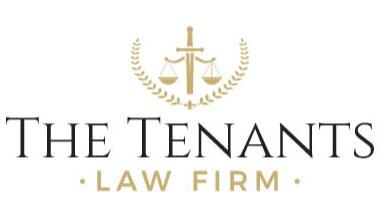Essential Details About Landlord-Tenant Mediation in WeHo
WeHo tenants who get into disputes with their landlords can resolve their issues without going to court. For example, one possible alternative to a lawsuit is to take part in mediation. Mediation is a method of determining tricky situations between parties in conflict without having to resort to the complicated bureaucracy of the courts. The mediation process helps tenants and landlords resolve a variety of issues, including the enforcement of homeowner association rules when it comes to condominiums and the loss of previously available tenant amenities.
What Is Mediation?
Mediation is a process by which both parties can meet and discuss the issue in a neutral setting under the guidance of a neutral mediator. Unlike court cases, mediation sessions are not open to the public, affording the parties privacy as they work their way toward resolution. The primary benefit of mediation is that it gives both parties the chance to fully explore the issue while communicating directly with one another to provide the opportunity for the parties to reach an out of court agreement that is satisfactory for everyone involved.
Who Is the Mediator?
In the City of West Hollywood, staff members from the Legal Services and Legislative Affairs Division will be responsible for conducting the mediation and serving as mediator. The mediator will serve as a neutral third party who will guide the discussion without taking one side or the other. Those who serve as mediators have experience and training in providing participants with the tools necessary to resolve their disputes. Unlike a judge, the mediator does not rule in favor of one of the parties or determine what the outcome of the mediation will be. Instead, they serve as an impartial guide for the conversation and provide support to ensure each party can communicate their point of view.
What Are the Benefits of Mediation?
There are innumerable benefits to WeHo landlord-tenant mediation. Since mediation is not compulsory, either party may request a mediation session, but the other party can decide on their own accord whether they would like to attend. Furthermore, the resolution of a conflict is only possible when both parties voluntarily agree to a solution, allowing them both to retain their autonomy and come to a decision that is satisfactory for everyone. Unlike the process of bringing the matter to court, there are no forms or fees involved. Furthermore, mediation is a non-adversarial process, so there is a better chance that the relationship between the two parties will remain positive.
What If Mediation Does Not Work?
Because landlord-tenant mediation only affords a resolution when both parties agree on a solution, it is possible that a dispute between a landlord and tenant will not be settled by the mediation process, and will proceed to court anyway. Neither party compromises their legal rights by participating in a mediation session, so it is still possible to bring the matter to court if mediation does not conclude in a solution that both parties agree upon.
